A collection of my must-read articles/books, must-watch series/movies and my thoughts about them. Lots of TL;DR, follow me on Goodreads to see how far behind I am in my book reviews.
Don't wanna be here? Send us removal request.
Photo
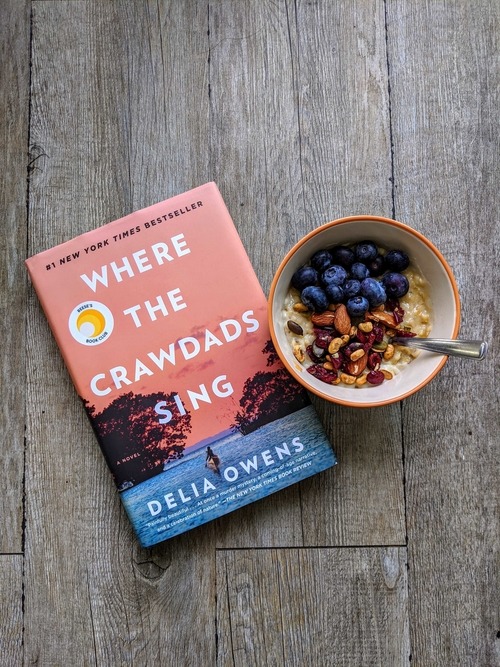
“Where the Crawdads Sing” by Delia Owens
Who knew that misty marshes, a dangerous swamp, a tricky North Carolina coastline, a bunch of friendly gulls, the murder of the town’s favorite quarterback and an abandoned white girl would make for such a gripping tale?
Set in the 1950s-1960s, “Where the Crawdads Sing” is the story of Kya, a solitary child left to fend for herself in a small shack nestled upon the marsh, isolated from the rest of Barkley Cove, the neighboring town. Surviving on a mix of grits and canned foods (earned by selling mussels to Jumpin’, a black man who becomes one of the only social links she nurtures), Kya builds a world of her own, populated by the organisms, birds, and other animals that thrive in the marsh. In fact, she is known as the “Marsh Girl” by the inhabitants of Barkley Cove, who openly chide her for her lack of social skills, her illiteracy and the squalor of her way of living.
The story shifts between flashbacks of Kya’s childhood and to the present-day, where she stands accused or murdering Chase Andrews, a popular, handsome man whose body is found in swamp not far from Kya’s shack. She is put on trial by a whole town who has rejected her for as long as she could remember, for the murder of a man who, after promising her the moon and back, also rejects her and abandons her.
“Where the Crawdads Sing” is a coming of age story - Kya grows into a adolescent and woman who is in tune with the sound of the seagulls, the wavering tides, the foam building on the crest of waves but who fails to connect with people because of her lifelong aversion of abandonment.
She is abandoned by a mother trying to escape the wrath of her drunk husband, by her siblings who take off one after the other to escape the blows of their father, by her father who slowly disappears into oblivion, and by two men who she reluctantly opens up to.
Delia Owens, as a former wildlife scientist, is blessed with a knack for details when bringing to life the biodiversity of the desolate terrain that sets the scene (and tone) of the book. There are some very long descriptions of the marsh and its inhabitants (the mussels, the fish, the grass, the tides), so this book might not be everybody’s cup of tea, but I am definitely a sucker for descriptions of nature (blame my high school teacher who introduced me to Wordsworth’s pagan poetry).
I really enjoyed reading this book, despite having a few qualms with the way Owens describes Kya’s physique. I definitely felt a “Men write Women” edge to her descriptions, especially when she emphasizes multiple times throughout the story how beautiful and mysterious and thin Kya was, using it as a let motiv to justify men’s interest in her (think 50 shades of grey but penned by someone who knows how to write a good sex scene).
All in all, this was a solid 4 out of 5 stars read for me - a good piece of fiction, a murder mystery, and a nice twist at the end to make up for some minor inadequacies - a perfect read to binge on while cosy-ing up on the couch (because, at this point, what else is there to do?)
#book review#2020 reading challenge#bookworm#booksofinstagram#north carolina#where the crawdads sing#nature#writing challenge#creative writing#writing#book club#lockdown#lockdownreads
0 notes
Text
‘Witches, Midwives and Nurses: A History of Women Healers’ by B. Ehrenreich and D. English
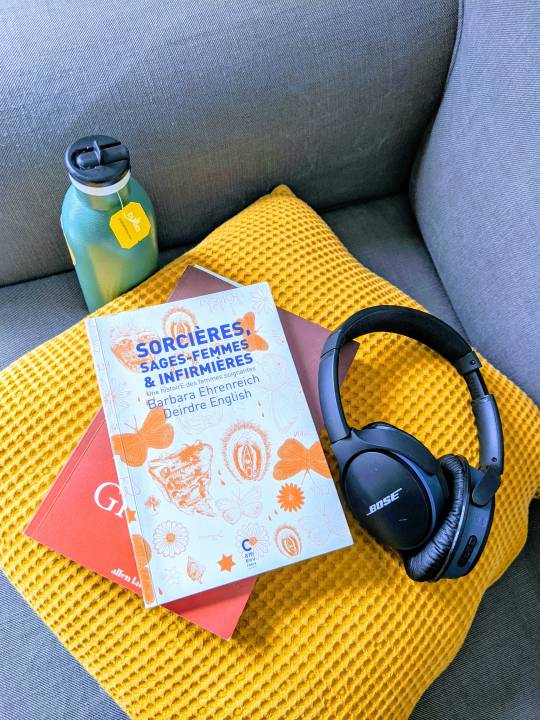
(featured picture is a perfect representation of how I like to read - on a sofa, under a quilt, with rad tunes in my ears, a water bottle filled to the brim with hot turmeric and lemon tea, a comfy pillow, and another book on my to-read list next to me)
On reading English books translated in French
I always read books written in English and French in their language of origin, so this is an unusual departure for me. But, I bought this French translation at a French feminist podcast live recording (in French, sorry!) organized by a podcast called La Poudre and featuring the incredible author Mona Chollet, who released a much anticipated book last year, Sorcières, retracing the history of witches across the ages. It’s still on my TBR list, but, in the haste of packing for the lockdown, I grabbed this French copy of Witches, Midwives and Nurses: A History of Women Healers, and proceeded to read it in a couple of days.
Book review
Witches, Midwives and Nurses: A History of Women Healers was published as a women’s health brochure more than 40 years ago, and was re-edited in 2010.
It’s a short, condensed history about the witch hunt that took place in the Middle Ages in medieval Europe and the during the Renaissance period. This witch hunt took place during nearly 400 years, between the 14th and 17th centuries.
These women were accused of:
Sexual crimes (against men)
Organizing assemblies and meetings (likened to demonic rituals)
Possessing magical powers that could heal and hurt people
More specifically, witches were accused of possessing medical knowledge pertaining to childbirth and obstetrics.
This book is also, most importantly, a short condensed history of women’s place as healers, midwives, and medical practitioners, and how their story and contributions were erased once men decided to professionalize and reclaim the medical field as their own.
Ehrenreich and English put forward that the medical field actively worked towards pushing women healers and practitioners out of the picture by barring them from joining medical universities and schools, even before the witch hunts began.
Witches, Midwives and Nurses is far from exhaustive take on the role of midwives and witches across all societies, especially in Africa and in Asia, but my takeaway from this short read is this: women have always been at the forefront of fields like medicine and engineering. These fields were given their modern-day prestige ONLY when men decided to claim them, professionalize them and, more importantly, exclude women, black people and people from lower income groups from accessing those jobs. We can still feel the effects of this erasure to this very day.
Let’s be honest: would a woman come up with a surgical metal forceps for obstetrical medical checkups? I shudder just at the thought of that gleaming, cold, metallic torture machine.
This pattern has revealed and repeated itself, across the ages. It is heartbreaking to think about how much knowledge went up in flames with the witches that burned unjustly, how much history has been forgotten because those witches couldn’t pen their side of their herstory.
This book is also an ode to discredited midwives who are starting to regain some of their territory lost to professional medicine today.
As a side note, I would highly recommend consulting a midwife for gynecological checkups. In France, there is a collaborative list online that references midwives and gynecologists who are LGBTQ-friendly and who provide safe spaces for vulnerable women.
It is an ode to all the women nurses who are on the front-line of the current health crisis, despite having been far too long relegated to an inferior position with regard to male doctors. Never forget that “doctors are the bosses of an industry where most workers are women”. It is an ode to all of those unsung heroines and the necessity of re-examining our history textbooks and putting our finger on their lack of visibility (hint: it has to do with a little something called patriarchy).
#witches#midwives#healers#book review#2020 reading challenge#feminism#herstory#sorcieres#podcast#mona chollet#confinement reading#lockdown#patriarchy#bookworm#reading challenge#bookstagram
0 notes
Text
“All About Love” by bell hooks
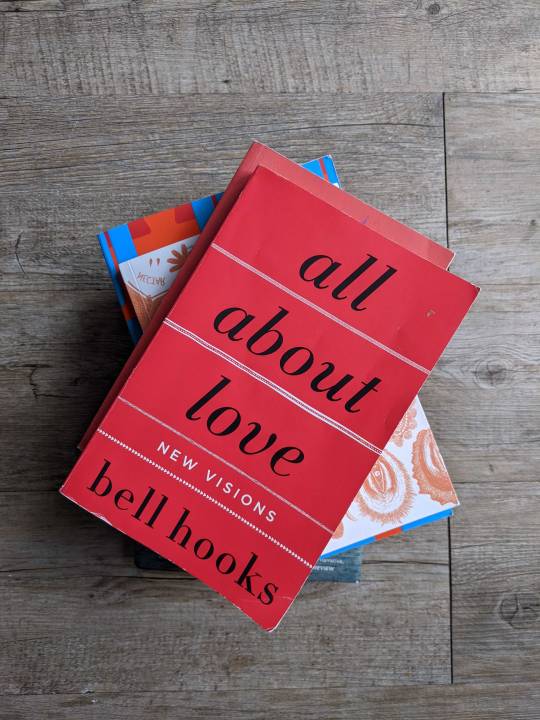
bell hooks is without any doubt a household name of intersectional feminism. I have read excerpts of her most famous works, including Ain't I a Woman?: Black women and feminism and Feminist Theory: From Margin to Center, and, even on the shortest paragraphs, my highlighter always runs dry.
Reading “All About Love” was very challenging for me because I tend to be very skeptical of any books that fall under the "self-help” handle. But if there is anyone who could make me read 200+ pages on love, that would be bell hooks.
In these 13 essays, hooks says the word “love” a thousand times and offers us precious insights on how love, as a verb, affects every single part of our personal lives, and every layer of public society, politics and policy. While I was not very responsive to her more spiritual take on love for very personal reasons, I was taken aback by certain self-evident truths that she graciously spilled in the pages of her book.
“Work occupies much of our time. Doing work we hate assaults our self-esteem and self-confidence.”
Can I say how violently I stuttered when I read that line? I am no stranger to the punches bell hooks packs in her essays but, blimey, that one shook me to my core. Like many of us I am currently in confinement, stuck in an apartment with my thoughts and anxiety, painfully and replaying and rethinking various aspects of my life. This sentence sent me down one of those dark rabbit hole paths I usually try to not venture down. My first job experience was one of the worst experiences I’ve been through and, 4 years later, I still bear its consequences on my self-esteem and self-confidence. Reading this chapter on the importance of bringing love into the workplace, of giving ourselves the means of doing something we love, even if it means temporarily doing something we don’t enjoy (bell hooks gives the example of when she worked as a night-shift cook in a club because it gave her the freedom to write during the day) are all ways of helping us find purpose. Refer to the chapter “Commitment: Let love be love in me” if the highlighted quote also hits (too strongly) home. My DMs are also open if you need to chat.
“If all public policy was created in the spirit of love, we would not have to worry about unemployment, homelessness, schools failing to teach children, or addiction.”
That’s another banger right there. bell hooks has no business serving hard truths, and yet she does. We have no other choice than to, as the young people say, ‘stan’. The chapter “Values: Living by a Love Ethic” is what you need to read to understand that love is not just wishy-washy concept that only belongs in highly addictive young adult fiction. It is an actionable verb that is currently MIA from our politics and policy-making and, having grown accustomed to its absence, we can no longer empathize with those lower down the food chain and demand justice from a system that is supposed to serve all of our interests.
Our current capitalist system has been built on narcissism, individualism and self preservation, eroding links and bonds with a wider community that once kept us grounded and connected.
“When love is present, the desire to dominate and exercise power cannot rule the day”. This hits even harder today because we are currently witnessing how our system isn’t geared towards the care and health of people and how it crumbles at the first sign of trouble and stress.
This structural lack of “love”, of empathy, of compassion, in the way our governments prioritize, allocate and slash budgets, in the manner in which they decide who deserves bail-outs and who does not, is responsible for the death, impoverishment, and humiliation of millions of women and men, and we have unfortunately become numb to the havoc it has been causing.
What immobilizes us on, an individual level, to spring into action in the face of such injustice is fear. Fear of the unknown, of being duped, of getting caught, of earning less...
bell hooks explains we are brainwashed into thinking that our safety in this world can only be secured by earning and possessing more than the next person, giving us a sense of perpetual dread and threat that annihilates any desire or will to change the status quo and reach out to people in our community who need a helping hand, who are in need of human solidarity.
To that effect, she claims that “...fear is the primary force upholding structures of domination”. Therefore, when we choose to “love our neighbour”, to reach out and to connect, we slowly manage to overcome this fear and, hopefully, with time, realize the strength in our numbers and in our solidarity.
My confined brain is incapable of expressing any more thoughts even if I do feel like I haven’t penned half of what I was intending on writing on this collection of essays. What I can say is that this read was a phenomenal eye opener for me but, even if I do believe that we do need to embrace a love ethic in both of our personal and public lives, nothing permanent or fundamentally altering will come out of it if our societies and governments don’t get the love memo too. If they don’t, patriarchy, racism, sexism, income and wealth inequalities, will remain as entrenched as they are today.
I’ll conclude with some other quotes that I furiously highlighted along the way:
“There is a gap between the values they claim to hold and their willingness to do the work of connecting thought and action, theory and practice to realize these values and thus create a more just society.” (P. 90)
“One of the ironies of the culture of greed is that the people who profit the most from earnings they have not worked to attain are the most eager to insist that the poor and working classes can only value material resources attained through hard work.” (P. 118)
“Replacing the family community with a more privatized small autocratic unit helped increase alienation and made abuses of power more possible.” (P. 130)
“To love well is the task in all meaningful relationships, not just romantic bonds.” (P. 138)
#bell hooks#book review#2020 reading challenge#intersectionality#love#essays#confinement reading#confinement#all about love#bookworm#inequality#social justice
3 notes
·
View notes
Text
“L’Amant” by Marguerite Duras
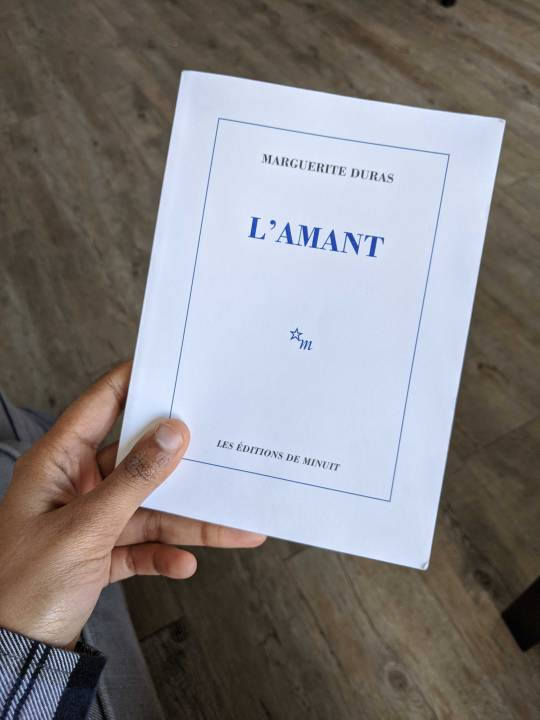
I grew up reading mostly English literature, so I am slowly trying to fill the French gap, specifically reading up on feminist texts or French classics written by women (Simone de Beauvoir’s The Second Sex is eyeing me from the coffee table as I write). One of the books I read this year is a French classic, Goncourt Prize winner, written by Marguerite Duras. She is an important and famous French writer, journalist, film producer, screenplay writer... you name it, she did it. She authored many well-known and widely acclaimed books (you’ve probably heard of ”Hiroshima mon amour”), which is why many of my friends were surprised to hear that I had never read anything by her.
“L’Amant”, which translates to “The Lover” was published in 1984 and is an autobiographical/autofiction take on Marguerite’s life in Vietnam, where was was born and lived until the end of high school. She talks about her childhood and adolescence, on her much older lover, “Le Chinois”, “The Chinese Man” (more on that later) and her highly dysfunctional family (erratic, depressed mother, violent older brother, traumatized younger brother).
I must say that I was expecting the story to be more centered on her romantic and sexual affair with “Le Chinois”, but I felt like her family took the centre stage of the book. I also felt that her lover, by virtue of his “name”, was made invisible, even if he was clearly an important part of her life. (She actually wrote another book 7-8 years after “L’Amant”, called “L’amant de la Chine du Nord” where she explores her affair with the same 28 year old man when was she was only 14 in an apparently more nuanced and mature manner.) Duras, fortunately, doesn’t romanticize or fetishize the Asian origins of her lover as much as I thought she would/could (different times, yadda yadda yadda).
I was also particularly intrigued by a section of the book when she reminisces about (what I interpreted to be) her crush and desire for Hélène Lagnonnelle, a peer from her boarding school who is equally ostracized by her fellow classmates because of her loose morals.
This was, all in all, a very neutral read for me - I will at some point take the time to either re-read it or read the aforementioned second book to make sure that I didn’t miss anything (I definitely feel like I need to focus twice as much when reading in French).
#marguerite duras#book review#2020 reading challenge#confinement reading#l'amant#the lover#hiroshima mon amour#autobiography#social distancing
14 notes
·
View notes
Photo
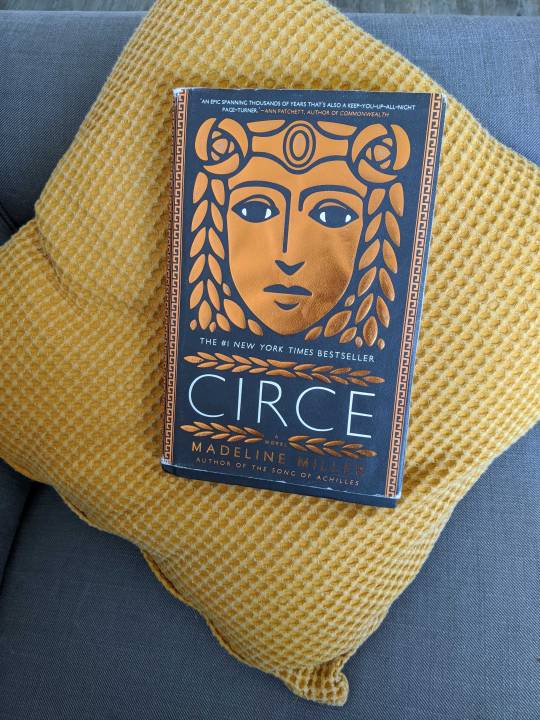
As a nominee for a character who best embodies the imposter syndrome, I give you Circe, daughter of Helios, god of the Sun, and Perse, an Oceanid nymph. (Trust me, if I were the daughter of a god and a nymph you wouldn’t hear the end of it.)
Circe is a formidable female protagonist, who is incidentally a goddess/nymph/witch gifted with the power of stirring magic in grains of soil, flower extracts and gusts of winds. She is violently cast aside and exiled by an unforgiving court of gods (including her own sun-god-father) who underestimate and deride the potency of her craft and its secret ingredient: empathy.
All her life, her power and worth have been undermined by an unforgiving mother, her cruel siblings, greedy, fallible humans and pretty, petty nymphs. Being exiled on the island Aiaia, as its sole inhabitant, amid Nature’s wild wonders, is a chance for her magic to shine through and bring purpose to her life.
This wonderful tale drifts through bulwarks of Greek mythology, with a stunning cast featuring the Minotaur, Hermes, Zeus, Odysseus, Athena, Penelope and many more.
Miller is a wonderful story teller, a sword-mistress of words. She beautifully depicts scenes of serenity, of wrath and of blissful nature. Through “Circe”, she gifts us adults with an epic tale, a happy ending and a moral story.
If you’re into Greek mythology, or would like to get into it, this book is a great way to get acquainted to the most important characters, gods and mortals alike, of sprawling epic stories that are still talked about today.
The rhythm of the book is dynamic, rocked by adventures, deep ocean monsters and the vileness of gods and humans, but also paced with interesting introspection and internal struggles faced by Circe. She is such a multi-layered, lovable character (I wanted to reach out through the words of the book and give her warm hug). If even magic-wielding goddesses feel worthless, how can we average mortals get by?
It's funny how, throughout the course of story, Circe's godliness is only amplified by how in touch she is with her own sense of humanity. This is a wonderful book, to be read again and again. Definitely a good companion in a time of forced confinement and introspection.
#Circe#madeline miller#GREEK GEEKS#greek mythology#book review#mythology#zeus#2020 reading challenge#confinement
15 notes
·
View notes
Text
On Earth We’re Briefly Gorgeous by Ocean Vuong
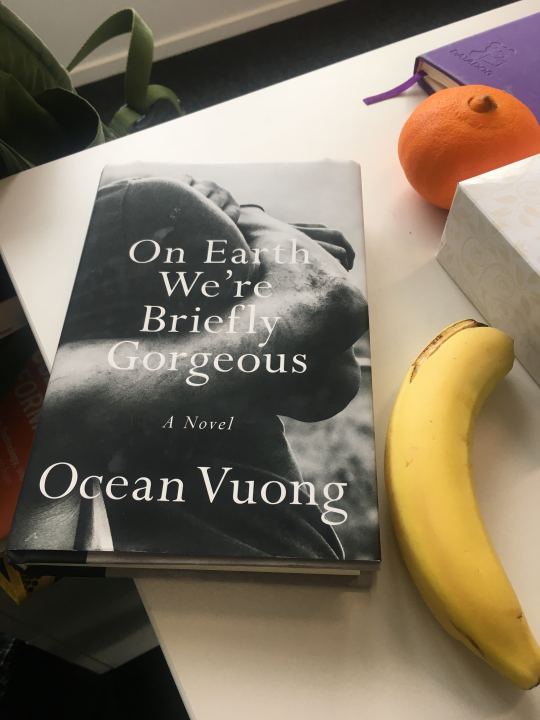
Ocean Vuong's writing is exquisite. I dog-eared the book so many times; he talks beautifully about how alienating one's mother-tongue can feel in our mouths when we are uprooted in an alien country, generational trauma transmitted from his grandmother in Vietnam to his contemporary American anxiousness, the potency of his intimate emotional and sexual relationship with Trevor, the commentary on the opioid crisis in America, the broken dreams on the concrete of immigration... this letter to a mother who remains elusive from the beginning to the end is scorching and unapologetic. However, even if I was very, very into Vuong's writing style, the lack of a unifying story and "plot" had me less engrossed than I originally thought I would be. But, color me intrigued: I will be definitely taking a look at his poetry collection, which, I believe, will hit home for me.
#2020 reading challenge#ocean vuong#lgbtq lit#book review#POC#vietnam#immigration#memory#trauma#bookworm
0 notes
Photo

The Secret History is a story that starts off with murder - an admission to a crime committed against a peer. The narrator, Richard, is recounting the story of his college days many years after the deed, and he sets the tone for a tale that is queer, disturbing, and always engrossing. Set in New England in the US, we are privy to the trials and tribulations faced by a group of six elusive students studying the classics, set across a picturesque college backdrop, framed by auburn trees and frosted tip mountain ranges. They are the chosen and exclusive students of an equally elusive and mysterious professor, who has a particular inclination for the study of the arts and beauty. The students are elites: the fleeting twins Camilla and Charles, the brooding leader Henry, the confused Francis and the exuberant, murdered, Bunny. They are good looking, wealthy beyond means, very keen on whiskey and other spirits and are racked with anxiety, doubts, and other troubles. Richard is an outlier - he is dirt poor, surviving on scholarships and odd jobs, but he manages to slither into their tight-knit clan thanks to a couple of well-strung lies and his above average comprehension of Greek. He soon becomes an accomplice to cold-blooded murder, triggered by an out-of-body experience. Unbeknownst to Richard and Bunny, the four other students embark in a Dionysian ritual, aided by illicit substances, lack of sleep, and other bodily constraints, in the hope of accessing a state of mental euphoria and inhibition as the Greeks and Romans used to during Bacchanals. However, in the course of this experience, Henry involuntarily kills a farmer, and has blood on his hands. Bunny, offended by his exclusion from this project, learns of the murder by prying in Henry's secret journal, and chooses to blackmail the group for favors. His endless nagging and jabbing and allusions stretch the group's patience thin and they decide, collectively, that Bunny was a walking menace and had to disappear. The rest is history. I enjoyed the cold-bloodlessness of Bunny's execution, the fact that the focus was less on the actual murder itself but the events that spurred the crime, and, more importantly, the events that followed. Richard is a haphazard narrator, but his rendering of the tale feels very genuine precisely because of his lack of precision. The Secret History is a tale about belonging and not belonging, about acute loneliness, secret cults and the feeling of superiority and it bestows upon its members, deep winters and even deeper betrayals. At the end of the day, all young people are miserable and we are all out looking to save our own skins, even if the ultimate sacrifice is our peace of mind.
2 notes
·
View notes
Photo

"An Orchestra of Minorities" is a spell-binding, heart-wrenching, epic love story that is doomed from the very first line of the book. As the young people say, I literally can't.
Narrated from the point of view of the protagonist's chi, which, in Igbo culture, is the guardian spirit attached to the physical body (host), this novel perfectly blends spirituality and the occult to a tale as old as time: a love story between two people who aren't deemed fit for each other.
After a string of unforeseeable events, triggered by a suicide attempt, Chinonso, a farmer, falls in love with Ndali, a British-educated Nigerian woman who comes from an upper class family. She also falls in love with him and they embark on a passionate and fiery affair that ultimately alters both their lives in incalculable ways.
However, her parents and family are staunchly against their union, unable to comprehend what Ndali, who is studying to become a pharmacist, could possible see in a lowly farmer who tends to chickens and fowls to earn his daily bread.
Troubled, humiliated, helpless and admonished, Chinonso decides to take fate in his own hands by selling all his worldly possessions to get a university degree in another land, far from Nigeria and far from Ndali.
Set across Nigeria and Cyprus, "The Orchestra of Minorities" sets the tone from the very beginning: this will not be a happy tale with a happy ending. Chinonso's chi is narrating the story to the court of spirits in Eluigwe "the land of eternal, luminous light", testifying in Chinonso's name, pleading to Chukwu, the "creator of all" to forgive the actions of his host.
I mean, this book is just downright incredible. The depth of the characters, the details, the setting, the story, the originality of having a guardian spirit narrate it, everything is just beautifully executed
I just kept reading and reading and nodding and exclaiming and I even cried because some parts of the story were too hard to stomach. This is the kind of book I would love to write some day and, if I ever come close to writing something as good I think I will just quit everything and go live a beach bum life somewhere in the world because nothing else would matter.
Much like a toxic ex-partner, this is a book that plays with your soul, destroys it, gives it hope, toys with it again, and leaves you aching for more. Damn. Nothing worse than reading a book so good even if you know that there is no possible way for the tale to end well. But you keep hoping.
I guess that's the signature move of a master storyteller.
0 notes
Photo

While this was my first time reading Agatha Christie, I must say that it felt weirdly familiar - it strongly reminded me of the mystery books I used to devour as a child (The Famous Five, Nancy Drew...). The book was addictive, fast-paced, witty and had a good cadence to it - making it an easy quick read to start off my 2020 reading challenge. "The Mysterious Affair at Styles" sets the stage for a classic trope, as far as murder mysteries go: backdrop: a sumptuous estate nestled in the British countryside population: a motley crew of characters with a motley set of motives intrigue: a newly-wed couple featuring a young dark handsome man and old, "past-her-prime" heiress with a will to set in stone. Murder inevitably strikes and Captain Arthur Hastings, one of the guests at the mansion, enlists the help of the elusive Hercule Poirot to help solve the mystery. A very fun read, written by a 27-year old Agatha and the first of many other novels featuring the famous Belgian detective. Looking forward to reading more! The next one of the list (in chronological order) is "The Murder on the Links"
8 notes
·
View notes
Text
What I read in 2019.
Like many other POC (person of color), I grew up reading books which staged protagonists who were overwhelmingly white, despite living in Mauritius, an island where white people are the minority (in numbers, not in potency).
When I would write stories, I fleshed overwhelmingly white characters, with pale skin, light blue eyes, delicate features - everything that I was not (TBH my characters were heavily inspired by vampires and witches from my Wicca-obsessed days, but that’s another story). It was hard to conceive that I could read or write stories about characters who remotely looked like me and the people around me.
That is why, as I grew up and moved to an overwhelmingly white country, I began to question my reading choices, and the reading lists drawn by prestigious magazines and school curricula. Why were there only white male authors on the menu? Was it impossible for women or POC (or, *insert gasp* a woman POC) to write relatable stories that were worthy of esteem and respect? Why was I made to read Dickens, Wordsworth, Camus for my Literature classes but never Nathacha Appanah, Audre Lorde, or Maya Angelou? Why? It was time to make a conscious choice to switch up my reading habits, broaden my literary horizons and bring in diversity into my Goodreads feed. Two years later, this conscious switch has developed into a steadfast habit. My reading lists are more diverse, the stories I read are richer by virtue of their differences and have provided me with deeper insights into the lives of people hailing from different countries and backgrounds.
After a lifetime of reading books written by white old dusty men, I am happy to publish my 2019 reading list, which is anything but. Here’s to hoping that my 2020 list will push the boundaries of the unknown even further away!
_____________
In 2019, I read 26 books, from 24 authors and spanning 11 countries (read two books by Roxane Gay and two books by Nathacha Appanah)

Takeaway: I need to read more authors from around the world - my reading list is still very America-centric. Will be trying to read more books written by Middle-Eastern and Asian authors - any recommendations are the most welcome!

No surprises here! Maybe I should strive to have a more balanced reading list in 2020 but, to be completely honest, I think I’ve read enough men in this lifetime to afford the current sex imbalance in my reading list. However, I should definitely aim to read more books about or written by LGBTQ people.

Again, no surprises for me here. This is a trend I will be keeping up because I am extremely hungry for stories written from the perspective of POC from all around the world. These stories tend to resonate strongly and have given me the release and escape that I need from the brunt of real life. I feel like I’ve learned so much while reading fiction as compared to my history classes. For example, I wasn’t aware of the extent of the tensions between Japan and Korea (following its annexation), which is the setting of “Pachinko” by Min Jin Lee, undoubtedly one of the best books I’ve read in my life.
I also rediscovered the stories of my ancestors while reading “Les Rochers de Poudre Or” by Nathacha Appanah, about how they materialized on Mauritius’ shores and their first beginnings on sugar plantations in forced servitude, and how their hopes of finding a paradise hearth slowly ebbed away.
The full list of the books I read in 2019 is available here. I have enrolled in another reading challenge for 2020, and I am hoping to read at 25 books this year. Stay tuned on this space for my random thoughts about them!
#book review#what i read in 2019#roxane gay#feminism#reading#intersectional feminism#poc#women writers#bookworm#2020 reading challenge
0 notes
Photo
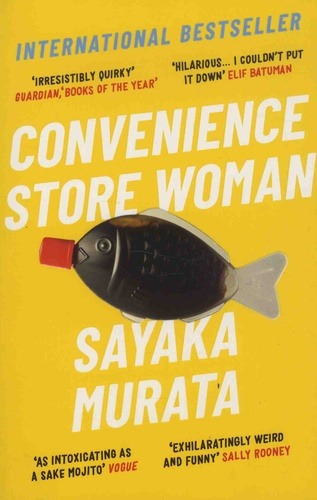
A short, sweet read that showcases a very peculiar protagonist who does not know how to navigate the real world outside the "konbini", a Japanese convenience store, where she has been working for nearly 18 years. It was interesting to see the world through the eyes of a character who lacks basic social cues (probably on the spectrum?) and who heavily depends on the familiarity and predictability offered by her daily tasks. This routine is brought to a halt when the real world budges in and demands that she conforms to its conventions - and we witness her struggle to piece back her identity and her sense of self that is strongly linked to the konbini. Very curious and fun read!
0 notes
Photo
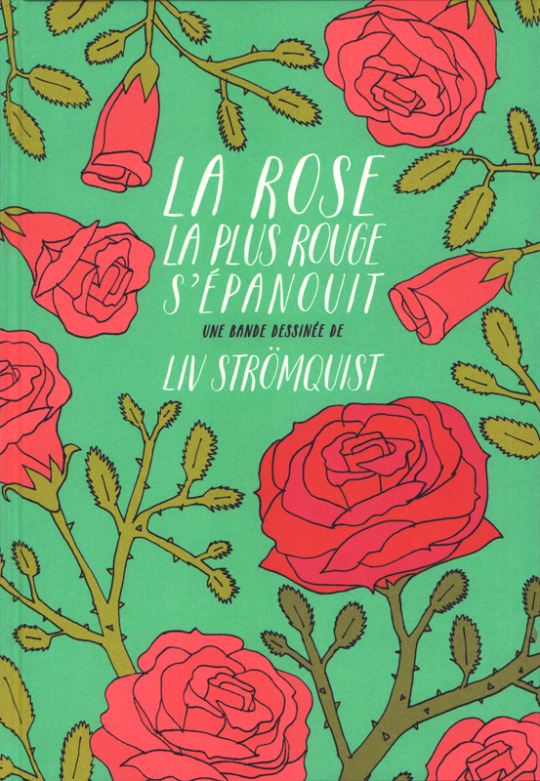
Another masterpiece by Liv Strömquist, who manages to break down theoretical concepts about love, relationships and gender relations into concrete examples set in reality and history. Starting off the book with a simple question "Why does Leonardo di Caprio have a hard time settling with one partner?", it's impossible to not be intrigued. What follows is typical Strömquist breakdown - she turns to philosophers, writers, Greek and Hindu mythology, historical and fictional characters, to help us understand why we have so much trouble settling for somebody, why it is so hard to maintain commitment in a relationship, and why being emotionally dependent on and absorbed by someone is now viewed in a negative light and as a feminine trait (or viewed in a negative light because it is now considered to be a feminine trait?) If you want to challenge your current perceptions of how modern relationships should look like, this book ought to do the trick.
0 notes
Photo
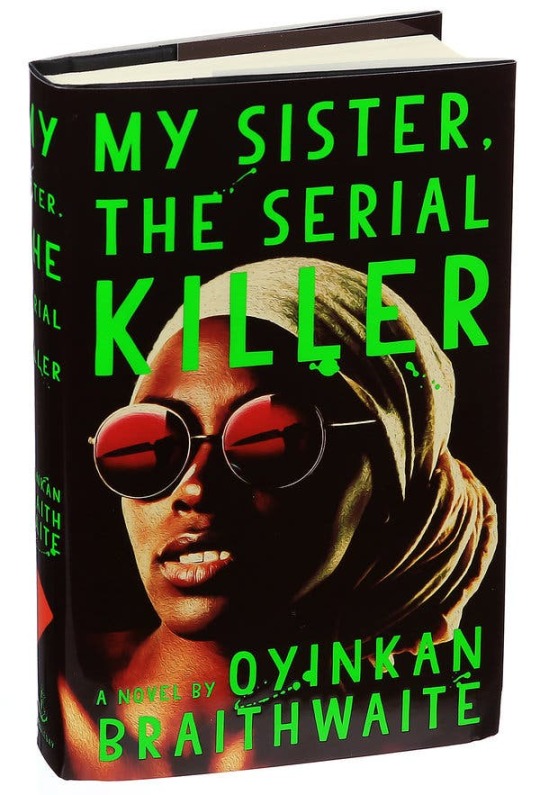
Read this in less than 24 hours - what a fantastic debut for Oyinkan Braithwaite! Fast-paced, funny, and flavourful, Braithwaite manages to breathe full-bodied life into a motley crew of characters over a short span of pages. Murder, sisterhood, family issues, set in Nigeria - it's definitely the perfect book for a Christmas break, when you're more likely to be surrounded by people who tend to get on your nerves. Also, this book made me realize that I had never read a story about a female serial killer. This book was the right antidote to cure the emptiness I felt after binge-watching "Killing Eve". Highly recommend!
0 notes
Photo
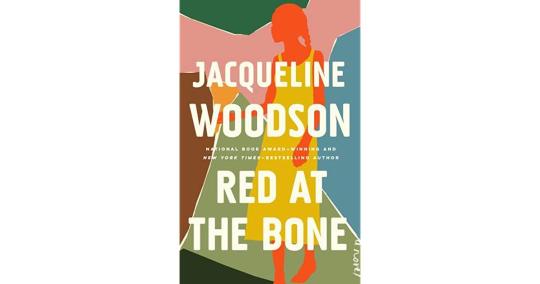
Another stunning 2019 read - like "An American Marriage" by Tayari Jones, I devoured each page, probably advancing too quickly through the book. In a book narrated at different points in time, "Red at the Bone" is a cross-generational tale, mostly based in NYC and Brooklyn that binds together members of the same family. There is nothing spectacular that occurs during the course of the book - it's just the story of an African-American family wading through loss, secrets, pain and finding their way out of it, without any guide book. It's a story about race, about teenage love, about growing out of teenage love, about moving on and mending broken hearts. A short, achingly beautiful story that stays with you long after you put the book down.
0 notes
Photo
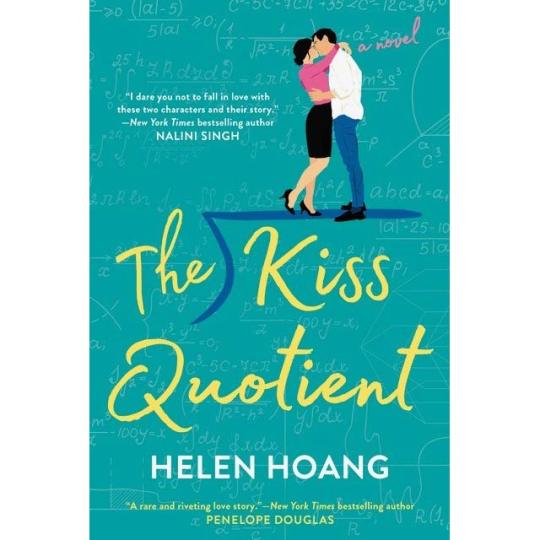
The first part of this review was written in a bitter rage fit, and the second part is tempered and make amends for the rawness of the first.
This book is for readers who are fond of romantic stories with predictable endings and two dimensional characters. While it was interesting to read a love story centered around the experience of a women with Asperger’s trying to navigate the dating world by hiring a sexy male escort to teach her how to fuck men and be good in relationships, the story-line was weak, the descriptions corny (I get it, Stella has a great ass and Michael has an eight pack) and packed with cringe worthy dialogue. I really tried to like this book but I think I was definitely not the right audience for.
However, this book had the merit of luring me to a book club hosted by the amazing Café con Libros, an independent black-owned bookstore in Brooklyn NYC and allowed me to hear the thoughts entertained by a host of different women on the book. This book got us talking about relationships while being on the spectrum or being afflicted with an “invisible” disability, about the importance of consent and voicing what we want to get from a relationship (for example when Stella, the protagonist, drew up a syllabus of all the sexual activities she wanted to master, and when Michael actively asked her for her consent before kissing her and pleasuring her), about finding pleasure in a heterosexual relationship while being a feminist and the importance of being independent financially or, at least, the creative freedom and space that financial security can provide, especially for women of color.
Conclusion: this was an below average book for me but it generated such an important debate that I can’t even be mad at it anymore (but please please please stop it with the corny descriptions, I just can’t deal with them).
0 notes
Photo

Disclaimer: This is a spoiler-free review so I am aware that everything below will probably not make sense if you haven't read the book. This book had me on edge from the very first lines/pages. You can sense that something is wrong but it's impossible to immediately put a finger on the source of unease. And when it feels like the author is about to make a big reveal, and give us our 'aha!' moment, he casually retracts and the puzzle remains intact (kind of like that sneeze that never really comes). This book is about three students, Kathy, Ruth and Tommy who all attend Hailsham (an exclusive British boarding school), and it follows them at different points of their lives. We are told on several occasions that all the students of the school are extremely special, but we are never told why during the first part of the novel. And it's hard to decipher what makes them special, other than their odd school rituals, their cliquey interactions and the way they interact with their teachers (known as their guardians). "Never Let Me Go" is a dystopia that is ironically very rooted in reality - which makes it all the more scarier. This must be one of the most intriguing novels I've read this year.
1 note
·
View note
Photo
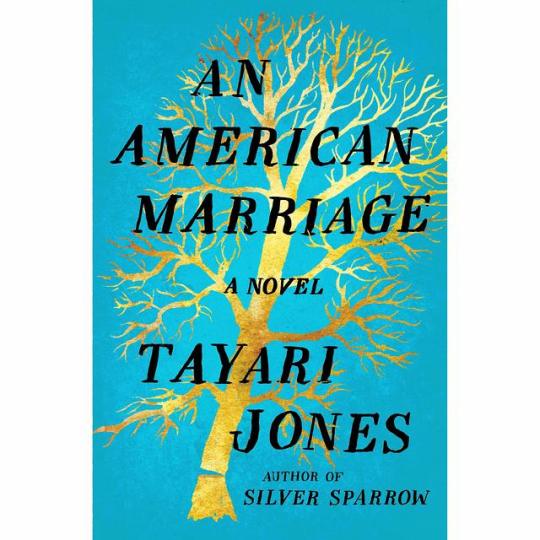
"I know who I married, too. You're in me. When I touch you, your flesh communicates with my bones." Reading "An American Marriage" was an exhilarating and emotional journey, during which Tayari Jones helps us tie the knots to the loose ends of Celestial's, Roy's and Andre's stories. "An American Marriage" is a tale of intersections between race, sex, love, and mourning. It brings together the reality of living whilst black in America with Roy's wrongful incarceration and how being at the wrong place at the wrong time can shatter and alter life trajectories and relationships. Other reviews have summarized the synopsis of the book, but I just wanted to linger on how powerfully Jones' wields words. Every sentence in this book is meaningful and perfect; the way she describes how roots bulge out of concrete city paths and links it to the Afro-American roots of her protagonists, the way she writes about the subtleties of (black) relationships (“When I was mad, I didn’t raise my voice. Instead, I lowered it to a register that you heard with your bones, not your ears.”) and the challenges of being a successful black woman stuck in limbo but having to move forward (“Women’s work is never easy, never clean.”). I could (once again) go on raving for hours, but suffice it to say that "An American Marriage" is definitely shelved in my top 3 reads of 2019.
0 notes